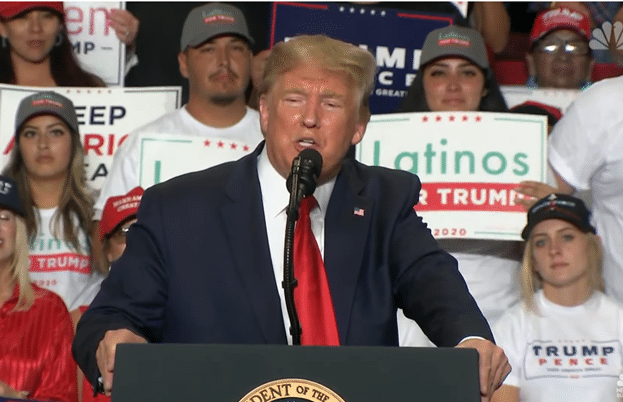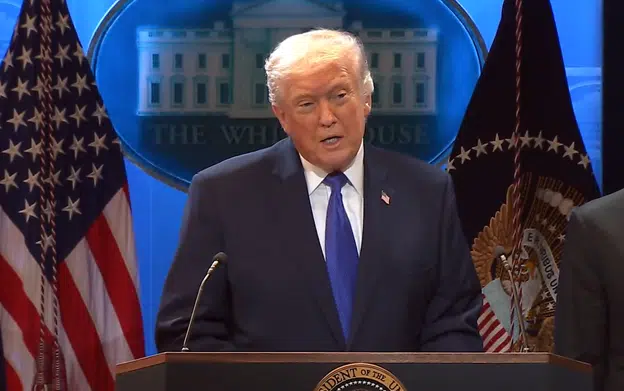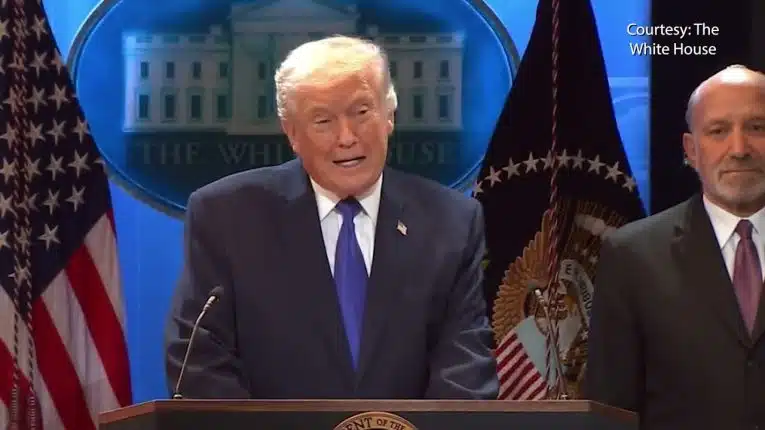
Republicans have made significant inroads with Hispanic voters in recent elections, with President Donald Trump earning the greatest share of the Hispanic vote for any modern Republican President in 2024 and House Republicans gaining nine points last fall compared to 2020.
As both parties scramble for the Hispanic vote ahead of the 2026 midterms, which constitutes an estimated 36 million eligible voters nationwide, new polling from a Hispanic advocacy group reveals that younger, educated, upwardly mobile, and bilingual Hispanics could be the largest obstacle for Democrats next fall.
A comprehensive survey from UnidosUS of 1,002 Hispanic Americans found that the primary concerns Hispanics face are issues the GOP is seen as better equipped to handle, such as the economy and jobs, inflation, and immigration.
The survey found that younger, upwardly mobile Hispanic voters — those with a college degree and those in the middle to upper-middle income brackets — are the most receptive to Congressional Republicans and hold the most favorable view of President Donald Trump.
To some, this could be seen as counter intuitive. Among white voters, non-college Americans played a significant role in President Trump’s victory. Among Hispanics, education and income (up to a point) drive voters toward the GOP. The most likely explanation is the GOP’s focus on economic issues, commitment to lowering taxes for the middle class and business owners, emphasis on reducing crime, and more conservative approach to social and gender issues.
According to the UnidosUS survey, higher-income Hispanics hold a substantially more favorable view of Republicans and Trump than lower-income Hispanics. 51 percent of Hispanics with income exceeding $100K hold a positive view of the Congressional Republicans — and 48 percent hold a positive view of President Trump. Among middle-income Hispanics, 38 percent hold a favorable view of Congressional Republicans, and 40 percent hold a favorable view of President Trump.
However, among Hispanics earning less than $39K annually, 29 percent hold a favorable view of Congressional Republicans and 33 percent hold a favorable of President Trump. This translates to a 13-point gap in favorability for Congressional Republicans between middle-income and higher-income Hispanics, and a 22-point gap in favorability between lower-income and higher-income Hispanics.
Education also plays a role, with Hispanic college graduates holding a more favorable view of Republicans. 46 percent of Hispanic college graduates hold a favorable view of Congressional Republicans. However, 31 percent of Hispanics with some college hold a favorable view of Republicans, and 32 percent of Hispanics with a high school diploma or less hold a favorable view of Congressional Republicans.
Another key factor is age. According to the survey, there is a wide bridge between how older Hispanics feel about Congressional Republicans compared to how younger Hispanics feel.
Congressional Republicans enjoy their highest favorability among Hispanics in the young professional cohort — Millennial voters between 30-39. 50 percent of Millennial Hispanics hold a favorable view of Congressional Republicans according to the survey.
In the generation below Millennials, Gen Z voters 18-29, a sizeable portion also hold a favorable view of Congressional Republicans. 43 percent of Gen Z Hispanics hold a positive view of Republicans. As for Gen X, 39 percent of Hispanics in the 40-59 age cohort hold a favorable view of the GOP. Those numbers shift substantially for Hispanics over age 60, with just 17 percent of Hispanics over age 60 saying they have a positive view of the GOP.
This translates to a 26-point gap in favorability for Congressional Republicans between Gen Z Hispanics and Hispanics over age 60, and a 33-point gap in favorability between Millennial Hispanics and Hispanics over age 60. These differences highlight the importance of generational experiences at shaping perceptions of the political landscape, and illustrate that younger upwardly mobile Hispanics are more open to conservative solutions than older generations or those earning less.
Interestingly, bilingual Hispanics, more so than those who do not speak Spanish or those who speak only Spanish, are the most open to conservatives. 45 percent of bilingual Hispanics hold a favorable view of the GOP, and 34 percent of Spanish-only Hispanics hold a favorable view of the GOP. Among English-only Hispanics, 27 percent hold a favorable view of Republicans.
These findings have sizeable implications for the 2026 midterm elections and beyond. Democrats are scrambling to forward a cohesive message to reel in Hispanics and young people after their catastrophic losses in 2024, while conservatives are hoping to maintain the momentum they gathered last November.
Both parties will be vying for the Hispanic vote, which is estimated at over 36 million eligible voters, or 14.7% of the electorate. Gen Z and Millennial voters are predicted to become increasingly influential in elections as well, representing half of the eligible voter electorate by 2026 according to U.S. Census estimates.
President Trump lost Hispanics nationwide by just four percentage points in 2024 after losing them by 33 points to Joe Biden in 2020, marking a significant turning point for the future of the country. Trump also won a greater share of young voters than any Republican in recent history. He lost the youth vote by just 11 points, after losing it by 24 points in 2020.
Congressional Republicans have a significant opportunity in the 2026 midterm cycle and in following elections to make the case to young, upwardly mobile Hispanics that they can offer stronger solutions than Democrats can. This includes a commitment to reducing taxes for the middle-class — something President Trump and Republicans in Congress championed last week in the passage of the One Big Beautiful Bill Act — and a commitment to reducing crime and bringing jobs back to American shores. Hispanics under age 60 — particularly those with college degrees in the young professional cohort and those who are bilingual — are some of the most open to conservative messaging.
Manzanita Miller is the senior political analyst at Americans for Limited Government Foundation.






